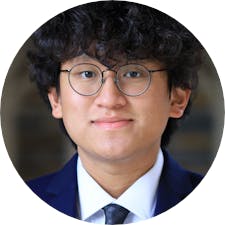New application and training requirements for teaching house courses were recently enacted, leaving some house course instructors unhappy with the changes.
In a Sunday email to Duke house course instructors, junior Heather Raslan, vice president of academic affairs for Duke Student Government, announced that “members of DSG along with academic Deans” had worked to improve the house course structure by implementing new training requirements and changing application guidelines.
House courses are half-credit courses that may be taught by undergraduate students under faculty supervision and graded on a satisfactory/unsatisfactory basis. Instructors must have their house courses approved and sponsored by a department in Trinity College and approved by the Committee on Courses.
Those wishing to teach house courses in the spring must now complete a three-hour “syllabus design workshop.” The workshops will be held on Sept. 16 and Oct. 1 and have already been filled.
The new requirement can also be fulfilled a few other ways, including taking certain courses or having previous teaching assistant or Thompson Writing Program instructor training. Those with prior teaching experience can also bypass the requirement if they submit a “500-word teaching statement.”
Instructors will also now need to complete Duke’s Coursera TA modules, which consists of five units and grants a certificate when completed.
Raslan also pointed out that house course instructors “are neither paid [n]or given [academic] credit” for their work, and having this new training standard “will be important in preparing instructors and also in advocating for getting credit to house course instructors.”
“Giving students some type of training, even just three hours, is critical to implementing a change where students receive credit for teaching a house course,” Raslan wrote in an email to The Chronicle. “As instructors, students need to be accountable for the fact that they are guiding the students in their course and even acting as mentors to them.”
She clarified that it is not certain that instructors will get academic credit this spring, but that it is something “still in the works.”
Raslan, who is also a current house course instructor, explained that the workshops will be led by teaching consultants from Duke Learning Innovation and will focus on topics like “designing/editing effective syllab[i]” and learning “how to valuably assess students.”
Instructor reactions
However, some house course instructors felt blindsided by the change and cast doubt on the benefits of the changes.
“There’s never been any communication to house course instructors about this,” said senior Elaijah Lapay, who is teaching the “Symbols of Nationalism” house course for a fifth time. “There hasn’t been an explanation as to why they’re instituting these changes.”
Lapay noted that he only automatically qualifies to fulfill the new training requirement because of his training he received to become a TA for the math department, and not because of his extensive previous experience teaching his house course. Had he not been trained to be a TA, he would have had to write the 500-word teaching statement, which he thought was excessive.
“These options aren’t bad per se, it’s more like, I don’t really understand where this is coming from — has there been some sort of wider problem with students not feeling prepared to teach house courses?” he said. “I’ve always been under the impression that the process of the application as it stands now is supposed to be that training.”
Raslan argued that because of the large responsibility that house course instructors take on, the new training is “important to help them work through these processes, so they feel confidence once they begin teaching.” She pointed out that other teaching positions on campus require training, which can sometimes include taking semester-long courses.
Junior Billy Cao, who is teaching the “Mad Studies” hours course, was also not consulted about the changes, and described the situation as “very opaque.” He said he was probably not going to teach the course again next semester, but now that is “definitely not going to happen.”
“It just adds a further barrier — the application is already kind of a lot in terms of having to develop the syllabus, and [having] to get a letter of recommendation and all that stuff,” he said. “People just really don’t have enough time to satisfy these requirements … I feel like it will just diminish the diversity of courses.”
Cao also doubted the effectiveness of the workshops, pointing out that house courses are all individually very different, and it would be better to “work it out with the faculty advisor directly.”
“I’m not really sure how or why this is something necessary. It would’ve been nice to have gotten some input or at least had a conversation with somebody who was considering putting this into implementation before it became something,” Lapay said.
Beyond the new training requirements, changes to the application process are also being made. Previously, all house courses had to have 50 pages of reading a week and a final paper of 1,500 words with five scholarly sources, according to Raslan.
Now, instructors will be able to propose courses with “any types of assignments and learning materials they choose as long as it is equivalent to work required of a [half-credit] class.” This will purportedly allow more flexibility in the designs of courses, particularly in disciplines like computer science.
“DSG hopes that the changes will not only increase the number and disciplines of house courses offered with time, but that house course instructors will feel more rewarded from the process by getting their work recognized with credit,” Raslan wrote. “These changes are being rolled out gradually and the goal is to give students more agency with house courses — not restrict them.”
Editor's Note: Billy Cao is a member of The Chronicle’s staff as a recess contributing reporter.
Get The Chronicle straight to your inbox
Signup for our weekly newsletter. Cancel at any time.

Jazper Lu is a Trinity junior and managing editor of The Chronicle's 119th volume.

